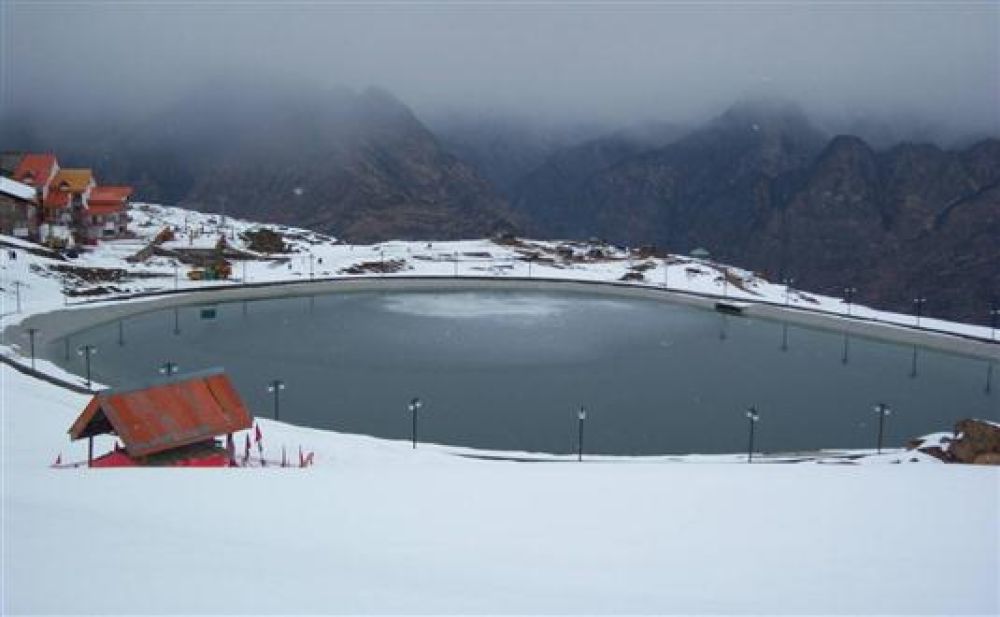

Auli, located in the Chamoli district of Uttarakhand, India, is no less than a paradise for tourists seeking the tranquility of the mountains combined with adventure sports. Known primarily for its winter sports, the region has seen a steady growth in tourism over the years with Chenab Lake being one of its hidden gems.
The history of tourism in Auli is synonymous with the evolution of its skiing scene. It was in the 1970s when the slopes of Auli were first noticed by the paramilitary forces who used this area for training their personnel in skiing. The natural gradients of Auli's slopes were perfect for skiing, and soon after, the word spread about the potential of this region for winter sports.
In 1980, the government of Uttarakhand, with the help of the French and Austrian experts, began to develop Auli as a ski destination. The infrastructure for skiing and the necessary facilities to hold winter sports were established, which led to the advent of tourists who were keen on experiencing the snow-covered slopes.
With the rise of adventure tourism and the development of state-of-the-art resorts and ropeways, Auli has become a go-to destination not only for skiers but also for travelers looking for pristine natural beauty, treks, and the experience of the local Himalayan culture.
While Auli is celebrated for its vast meadows, skiing facilities, and panoramic views of high Himalayan peaks, the Chenab Lake adds a rather serene and unexplored touch to the region. This small crystalline water body is relatively lesser-known, making it a perfect spot for those in pursuit of solace and untouched natural surroundings.
The lake is not directly accessible by roads and requires a small trek, which ensures that it maintains its pristine condition, being away from the throngs of regular tourists. The trek to Chenab Lake is an attraction in itself, offering travelers an opportunity to walk through the lush green trails surrounded by the mighty Himalayas.
In recent years, tourism trends in Auli and Chenab Lake have seen a shift towards sustainable and eco-friendly practices. There is a growing emphasis on preserving the natural beauty and ecological balance of the region while providing tourists with authentic experiences. Glamping, or luxury camping, has started to gain popularity, combining comfort with an immersive environment-friendly outdoor experience.
Moreover, the local government is focusing on promoting off-season tourism to reduce the pressure on Auli during the winter months. Activities like summer treks, mountain biking, and cultural tours are being developed to attract tourists year-round, and this has contributed to a more sustainable tourism model for the region.
The emphasis on localized tourism catering to small groups ensures a lower environmental impact and promotes intimate encounters with Auli's breathtaking landscapes and unique culture. Chenab Lake, with its untouched beauty, is slowly becoming one of the focal points in this new eco-centric tourism approach.
In conclusion, the tourism history of Auli and the enticing Chenab Lake is a testament to the region's adaptive growth towards inclusive and responsible tourism. The allure of these destinations, bolstered by the blend of adventure, serenity, and sustainability, continue to charm tourists from across the world.